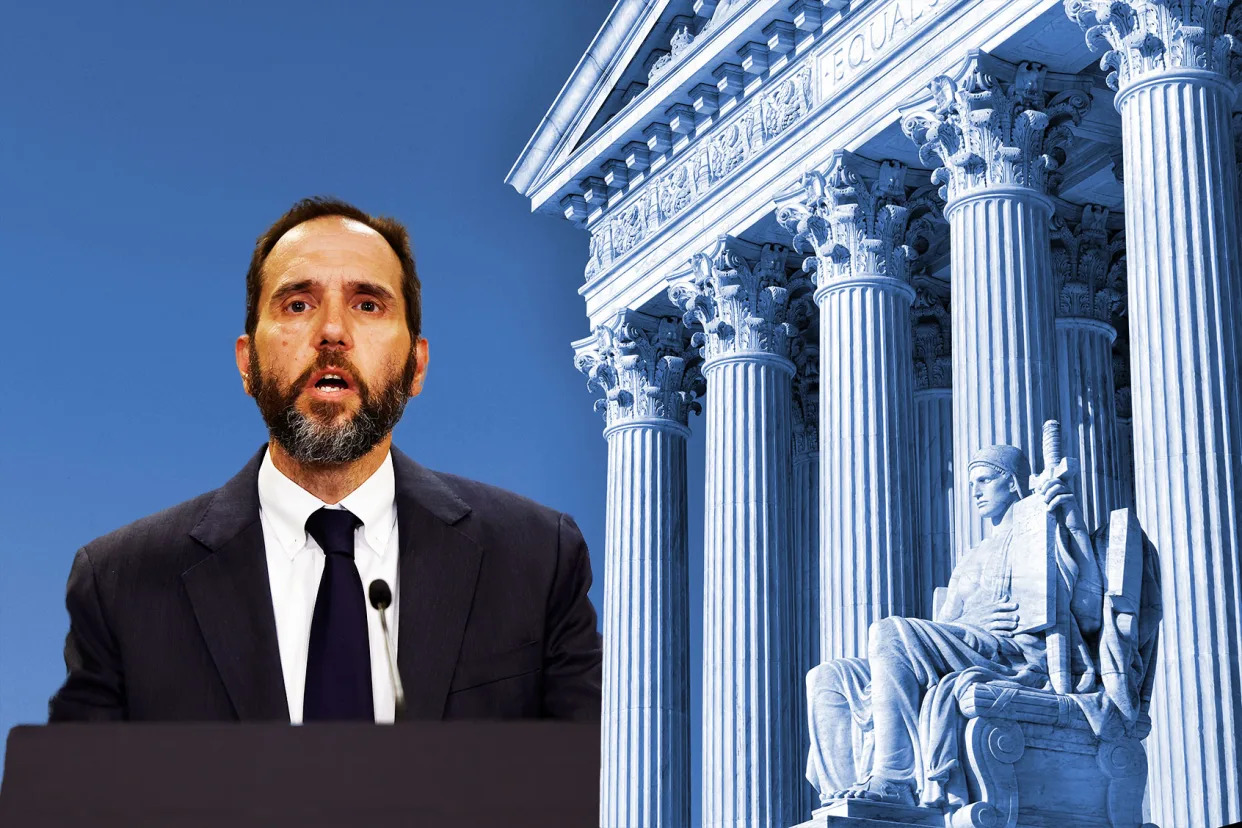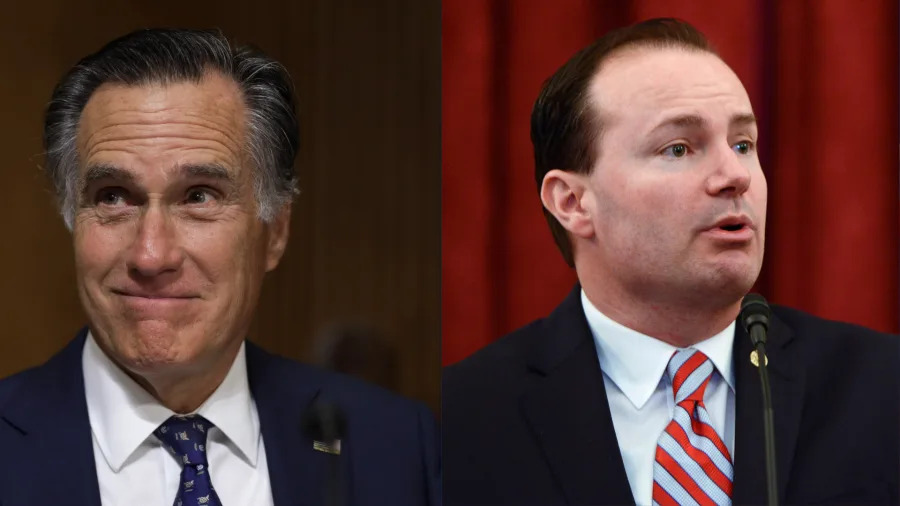Salon – Opinion
New documents underscore why the Supreme Court must let Jack Smith’s Trump case move forward
Amanda Marcotte – February 14, 2024

Despite taking their own sweet time to render what should have been a five-minute decision ruling that Donald Trump is not immune from criminal prosecution, the D.C. Circuit Court of Appeals did do Americans one big favor: They removed most of Trump’s avenues to continue delaying what has become known as the “January 6” criminal case against him. I’ll spare readers the tedium of recounting the legal maneuvering that was avoided, and sum it up as this: The court gave Trump a Monday deadline to appeal to the Supreme Court. He, as usual, put it off until the last minute but did indeed make that appeal by the end of the day.
Now there is only one question: Will the six Republican justices on the court sabotage the case brought by special prosecutor Jack Smith?
Almost no legal experts think that the justices, despite being partisan hacks, will humiliate themselves by upholding Trump’s asinine claims of total license to commit as many crimes as he wishes. But, as Ian Millhiser at Vox explains, “the Court could simply sit on his request for a very long time without taking any action on it.” Doing so would destroy the chance that Trump’s criminal trial for his attempted coup would occur this year. If he wins the election, it would destroy the case completely. There is no doubt that Trump would appoint a corrupt crony to head the Justice Department, and that stooge would kill the case.
On the same day that Trump filed his appeal, Talking Points Memo released a blockbuster report that underscores what a devastating blow to democracy it would be if the Supreme Court derailed this criminal case against Trump. As Josh Kovensky writes, Kenneth Chesebro, one of the unindicted (so far) co-conspirators in Smith’s D.C. case, provided “a trove of documents” to Michigan prosecutors as part of a cooperation agreement to avoid charges of efforts to steal the election in that state. (Chesebro has already pled guilty in a similar case in Georgia.) The documents show how Trump and his conspirators hatched a plan to steal the election by interrupting, delaying, filibustering or otherwise blocking the congressional certification of electoral votes. The idea was to sow chaos for days, if not weeks, in hopes the Supreme Court would step in and simply nullify the election, declaring Trump president.
The full plan never came to fruition, in large part because the conspirators didn’t get enough buy-in from then-Vice President Mike Pence and other key Republican leaders to pull it off. But the documents are a chilling reminder that the violence of the Capitol insurrection was just a small part of what was a vast, sweeping conspiracy to steal the 2020 election from President Joe Biden and the voters who elected him. This matters, because “January 6” has become a shorthand for an attempted coup that, in actuality, lasted for two months and across multiple states. No doubt, the Capitol riot was the flashiest part of this effort. But there’s a real danger that the violence that day is eclipsing the public’s understanding of all the events — and crimes — that led up to QAnon idiots storming the Capitol.
Worse, focusing on the Capitol riot at the expense of talking about Trump’s larger attempted coup allows Republicans to gaslight voters about how serious Trump’s efforts to overthrow democracy really were. One of the favorite tactics of Republicans is to pretend the riot was just a protest that got “out of hand” and deny that Trump was deliberately instigating it with his “fight like hell” speech.
That lie is harder to pull off when one looks at the larger context. Trump and his conspirators had been plotting for months to derail the electoral vote count, creating what they hoped would be a pretext to nullify the election. The attack on the Capitol was part of this larger plan. That’s why it’s ridiculous to pretend Trump didn’t deliberately instigate the riot. Taken together with all his other actions to derail the electoral vote-counting, it’s clear that the riot was part of the larger scheme to keep the election from being certified.
It’s worth revisiting the indictments that Smith filed against Trump last summer. While journalists tend to call this the “January 6” case, the indicting document refers to a conspiracy that stretched from “November 14, 2020 through on or about January 20, 2021.” The evidence is extensive, but only a fraction of it involves the efforts to bring followers to the Capitol to be foot soldiers in the insurrection. Mostly it’s about the various efforts to persuade officials on all levels of government to certify fraudulent electors in the place of the real ones, or to fabricate enough votes for Trump to throw the election, or to get the Justice Department to declare the election fraudulent as a pretext to throw out the results. It’s only when all that failed that Trump turned to violence to create the chaos that Chesebro and his associates thought could be used as cover to declare Trump the victor.
It’s crucial that Smith get to present this evidence to a jury — and to the nation — before the election, and ideally, before the official party nominations are secured at the conventions this summer. Republican voters will probably pick Trump as their nominee anyway, but it’s only fair that they have a chance to be reminded of how central he was to his own coup before they decide to move forward. Trump is more than a guy who gave an ill-advised speech on a single day. He spent every day for weeks scheming to overthrow democracy. Voters really are owed a full accounting of the attempted coup, and not this reductive view that it was just one bad day at the Capitol on January 6.
The new Chesebro documents are a strong reminder that the plot to steal the election really hinged on whether the Supreme Court would, as Trump hoped, use the Trump-created chaos as an excuse to simply declare the election null and claim Trump can retain power indefinitely. There’s some reason to believe the justices, like Pence, wouldn’t have played along it if came to that, because they knocked down Trump’s other lawsuits asking for the courts to nullify the election.
But if they slow-walk this case so that Smith doesn’t get to try it before this year, the court has proved themselves just as corrupt as Trump believed them to be when he asked them to steal an election for him. The case presented to them is a lay-up. There’s no legitimate cause to argue that Trump gets forever immunity for his crimes. All they need to do is put out a one-sentence response upholding the D.C. opinion. That can be done this week. Frankly, that could have been done within minutes of Trump filing his appeal. It’s rare that matters of law are as black-and-white as this, but here we are. If the Supreme Court slow-walks this, the only reason would be to help a man who tried to overthrow the government get away with his crimes.








